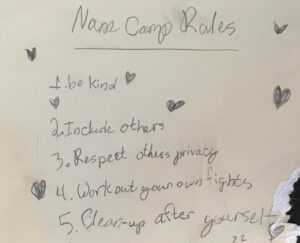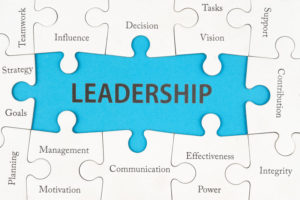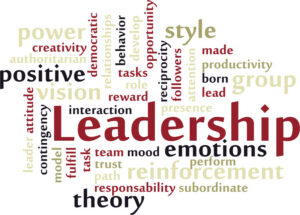We held our second Nana Camp last week. Given how well it went (despite my husband and I being exhausted by Friday night), I think we’ll make it an annual event in the summer. Last year I wrote about our first one in my post “Leadership lessons from nana camp”. The rules we agreed on (pictured in that post) hung on our refrigerator until a few months ago when my husband went on a purging spree. Good thing I have a record here so we could revisit and decide on new/revised rules for this year.
our first one in my post “Leadership lessons from nana camp”. The rules we agreed on (pictured in that post) hung on our refrigerator until a few months ago when my husband went on a purging spree. Good thing I have a record here so we could revisit and decide on new/revised rules for this year.
Two (ages 10 and 8) of the four grandkids had their first away/overnight camps this year having attended Girl Scout camp. So, they came to Nana Camp with a new perspective. My daughter suggested that the 10-year-old could be a Counselor in Training (CIT) when we were last together as a family on Father’s Day. I wasn’t quite ready for that but I’m a fan of delegation! Not sure what a CIT would mean for us but as a start that day, she wrote down the list of ideas for this year and what they liked from last year. That list of course was put on the refrigerator door. We used it at our camp “orientation” session Monday morning to plan and vote on activities for the week.
The other two (ages 8 and 7) have been to day camps that are mornings only and gotten used to making their own lunches at home while their parents work in their home offices. Love hearing that! Means they all are capable of it and that I could expect them to do more for themselves at breakfast and lunch.
Together on Monday we agreed on activities for the week and what the rules would be. We also talked about their lessons from last year – mainly not to have stupid fights about everything – who sits by who at dinner, who sits by who in the car, who gets the first shower, who walks which dog – you get it! And of course, they are one year older and that much more mature!
Here is this year’s complete list of rules – a slight variation on last year with few additions: Continue reading








